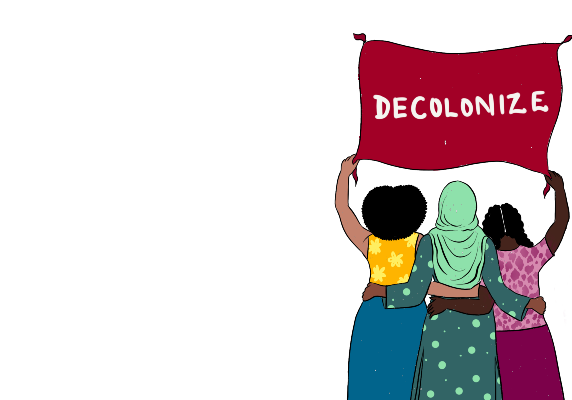Top tips for getting your first job in international development
Leaving university or looking for an entry-level job in the INGO sector can be a daunting prospect for anyone, and at a time when we are seeing fewer and fewer entry-level jobs come onto the market, it can feel like mission impossible.
My name is Katherine, and I am Bond’s Sector Transformation Coordinator. I have a BA in Sociology with a specialism in Race and Global Politics from Warwick University and an MSc in Human Rights and Politics from the London School of Economics and Political Science and joined Bond in October, last year.
Here are my tips that will hopefully help you land your first job in the INGO sector.
When entry-level jobs don’t feel like an entry-level job
When I first started my job hunt post-university, I was amazed at how many “entry-level” jobs in INGOs, including administrative or UK-based positions, required years of experience, and in some cases an MA in international development subjects. This is one of the few sectors I have come across that doesn’t have entry-level jobs and internships are hard to find, which is a shame because I know the sector is trying to bring in more diversity.
Though I do think this is something INGOs should address, my advice to anyone looking to work for an NGO is to look elsewhere for your first job. Many skills are transferable. This was the approach that I took, and it meant that I secured an internship working with the Human Resources team in a sustainable investment firm. It allowed me to build my core skills, like understanding how to prioritise and manage my workload and time.
Use the resources around you
I was fortunate enough to go to Warwick University for my undergrad because it also had a good careers advice department. If there are any opportunities to volunteer while you are at university, take them and use your time wisely. This is all experience that you can draw on when writing your CV or a cover letter. It’s also worth going to events about the things you are interested in exploring career-wise. Not only do you get the chance to learn more, but this is also a great networking opportunity and a place to build contacts who might be able to offer advice or signpost opportunities.
Get on LinkedIn and add all the contacts you make through networking and sign up for lots of job boards. Lots of jobs are shared on LinkedIn and recruitment agencies also use LinkedIn to find people to fill vacancies.
For my fellow young Black peers, take a look and apply for the 10,000 Black Interns scheme. I heard about this scheme through word of mouth at university and from fellow peers who were previously enrolled on the programme. This scheme was key to me landing my first paid internship. It can take them a bit of time for them to come back to you with potential organisations looking for interns, but it is worth the wait.
Check out Bond’s jobs board
Bond’s unique jobs board is dedicated to international development and humanitarian recruitment.
Whether you’re working in international development or want to join the sector, our board features jobs at all levels, from assistant to manager to chief executive.
Find out more about Bond's jobs boardFind ways to expose yourself to different parts of the organisation
Once you do get your first job in an INGO, use this as an opportunity to explore other parts of the organisation to find out what other career paths exist, be it policy work, fundraising, advocacy or communications. Try to make the most out of projects that are about working across teams to learn more about what those teams do. With support from your line manager, ask if you can spend a bit of your time working with another team if their area of work is of interest. This would help you get an idea of what that job would look like in practice and build up your CV. Don’t shy away from asking what skills you would need to build to be able to do your job.
From the outside, this sector can seem extremely formal and competitive, and even once you’re in it, people can struggle with imposter syndrome. I would encourage any young person to be creative, and not underestimate the value of diverse work experience: there are many ways to get here.
INGOs should bring diversity and fresh thinking to their organisations
I would love to see INGOs signing up for schemes like 10,000 Black Interns or any other internship schemes because, right now, joining the sector feels a bit like trying to get into Fort Knox.
Why not go to universities and talk to students about your organisation or your role during career days? Find out where to recruit diverse people from the people who are tapped into those spaces because that will help you to create an inclusive recruitment process. Ask all prospective employees about how they have demonstrated their commitment to diversity, inclusion and anti-racism so they understand that this is a core part of what it means to be part of your organisation.
When you are interviewing someone for an entry-level position, allow them to demonstrate transferable skills practically or send them the exercise in advance so they have time to think about how they would approach the task. It can be intimidating being interviewed by stern-looking people, who may not speak or look like you, so strike a balance between being formal and conversational to help people relax and do themselves justice during an interview.
Category
News & ViewsThemes
HR and careers



